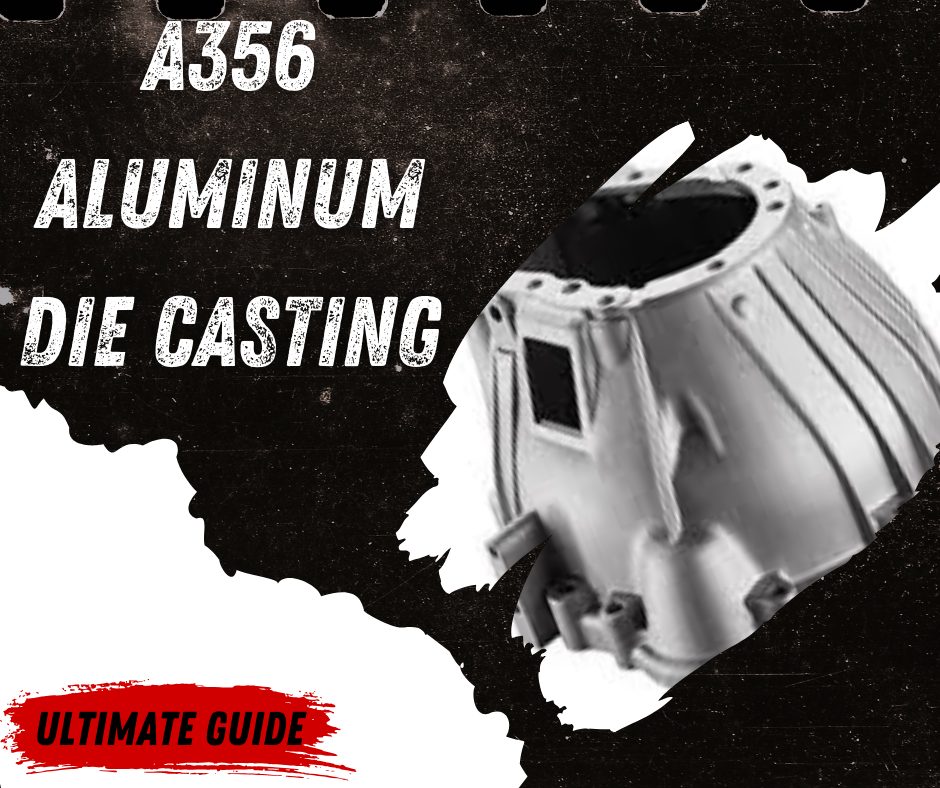Alcast Company Fundamentals Explained
Table of ContentsSome Known Facts About Alcast Company.Some Ideas on Alcast Company You Need To KnowThe smart Trick of Alcast Company That Nobody is Talking AboutAlcast Company Things To Know Before You BuyFacts About Alcast Company RevealedAn Unbiased View of Alcast Company
The refined distinction hinges on the chemical material. Chemical Contrast of Cast Aluminum Alloys Silicon promotes castability by decreasing the alloy's melting temperature level and enhancing fluidness throughout spreading. It plays a vital duty in allowing elaborate mold and mildews to be filled accurately. In addition, silicon adds to the alloy's strength and put on resistance, making it beneficial in applications where sturdiness is vital, such as automotive components and engine parts.It likewise improves the machinability of the alloy, making it easier to refine right into finished products. By doing this, iron contributes to the total workability of aluminum alloys. Copper increases electrical conductivity, making it useful in electric applications. It also boosts deterioration resistance and includes in the alloy's total strength.
Manganese adds to the stamina of aluminum alloys and improves workability (Aluminum Casting). It is frequently utilized in functioned light weight aluminum products like sheets, extrusions, and profiles. The visibility of manganese help in the alloy's formability and resistance to fracturing throughout manufacture processes. Magnesium is a light-weight aspect that provides stamina and impact resistance to light weight aluminum alloys.
Alcast Company for Dummies
It permits the manufacturing of lightweight elements with excellent mechanical residential or commercial properties. Zinc improves the castability of light weight aluminum alloys and assists manage the solidification procedure during casting. It enhances the alloy's stamina and hardness. It is commonly discovered in applications where complex forms and fine information are necessary, such as decorative castings and specific auto parts.

The primary thermal conductivity, tensile stamina, return stamina, and prolongation differ. Among the above alloys, A356 has the highest thermal conductivity, and A380 and ADC12 have the lowest.
Alcast Company for Beginners

In accuracy spreading, 6063 is well-suited for applications where elaborate geometries and top notch surface area finishes are paramount. Examples consist of telecommunication enclosures, where the alloy's remarkable formability permits sleek and cosmetically pleasing designs while preserving structural stability. In a similar way, in the Lighting Solutions industry, precision-cast 6063 elements develop sophisticated and efficient illumination fixtures that need elaborate shapes and excellent thermal performance.
It causes a better surface area finish and better deterioration resistance in A360. The A360 exhibits exceptional elongation, making it ideal for complex and thin-walled components. In accuracy spreading applications, A360 is well-suited for markets such as Consumer Electronic Devices, Telecommunication, and Power Tools. Its improved fluidness permits detailed, high-precision elements like smart device coverings and interaction tool real estates.
Rumored Buzz on Alcast Company
Its unique residential properties make A360 a beneficial option for accuracy casting in these markets, boosting item resilience and quality. Aluminum alloy 380, or A380, is an extensively made use of spreading alloy with numerous unique characteristics. It provides excellent castability, making it an optimal choice for accuracy spreading. A380 exhibits great fluidness when molten, guaranteeing detailed and detailed mold and mildews are accurately recreated.
In accuracy spreading, aluminum 413 radiates in the Customer Electronic Devices and Power Tools sectors. It's commonly utilized to craft detailed parts like smart device real estates, electronic camera bodies, and power tool coverings. Its accuracy is exceptional, with limited resistances as much as 0.01 mm, guaranteeing flawless item setting up. This alloy's exceptional corrosion resistance makes it an outstanding choice for outdoor applications, making certain resilient, sturdy items in the discussed industries.
See This Report about Alcast Company
When you have chosen that the light weight aluminum pass away casting process appropriates for your job, an important next step is picking one of the most ideal alloy. The aluminum alloy you pick will significantly impact both the casting process and the buildings of the end product. As a result of this, you have to make your choice thoroughly and take an informed strategy.
Identifying the most appropriate aluminum alloy for your application will certainly mean evaluating a vast range of features. The first group addresses alloy attributes that impact the manufacturing process.
Alcast Company for Beginners
The alloy you select for die casting directly look at this now influences several facets of the spreading process, like how simple the alloy is to collaborate with and if it is prone to casting flaws. Warm splitting, additionally called solidification breaking, is a regular die casting defect for aluminum alloys that can result in internal or surface-level rips or fractures.
Particular aluminum alloys are a lot more prone to warm breaking than others, and your choice should consider this. Another typical defect located in the die casting of light weight aluminum is pass away soldering, which is when the cast adheres to the die walls and makes ejection challenging. It can damage both the cast and the die, so you need to try to find alloys with high anti-soldering residential or commercial properties.
Deterioration resistance, which is currently a noteworthy feature of light weight aluminum, can differ substantially from alloy to alloy and is a vital particular to consider depending on the ecological conditions your item will be subjected to (aluminum metal casting). Put on resistance is another residential or commercial property commonly sought in light weight aluminum items and can differentiate some alloys